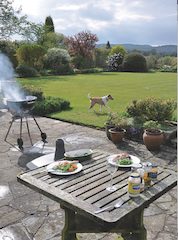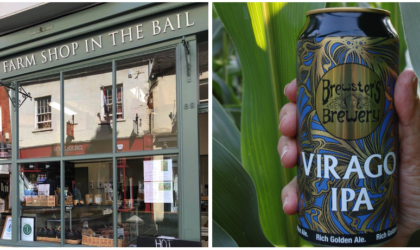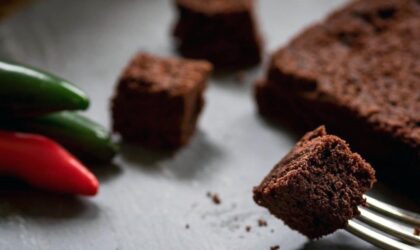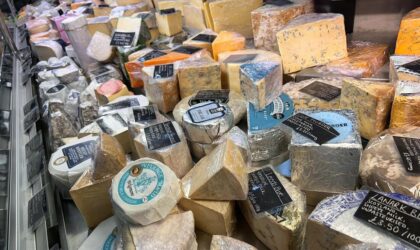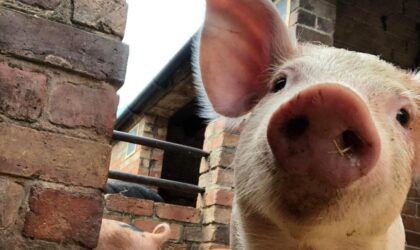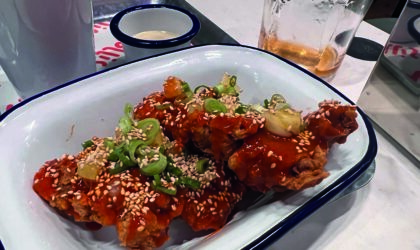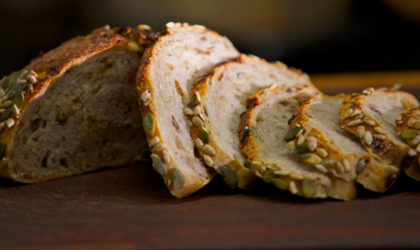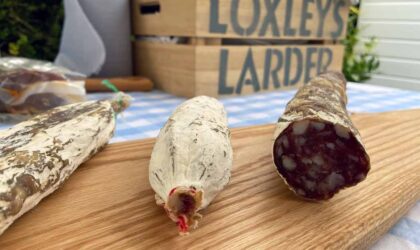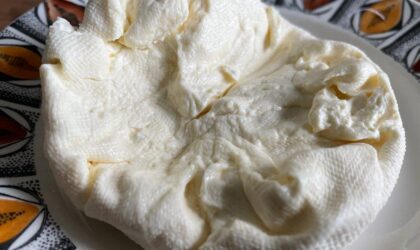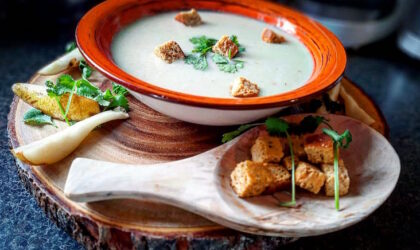The summer art of the English barbecue
By Matt Gregory
Usually it’s the pungent whiff of fire-lighters and flammable liquids that heralds the arrival of the barbecue season, but wouldn’t it be nice if it was the seductive whiff of wood smoke and meat as it sizzled happily on the grills?
The barbecue has come of age – there are more wood-fired and charcoal grills being installed in great restaurants than at any time in the past. The possibilities of extraordinary flavours are at our own fingertips at home… well, in the garden when the sun comes out, anyway.
There is so much more than burnt supermarket sausages and flaccid frozen burgers to delight and tempt – we have some of the world’s finest ingredients to put to the heat. America and Australia may have the climate to perfect outdoor cooking, but we have more than a few tricks up the sleeve of our culinary heritage too.
______________
Fuels and flavour
As obvious as this may seem, the fuel you choose to cook over plays an enormous part in the final flavour of your barbecue.
Gas-fired barbecues will burn neutrally.
Lump-wood charcoal also burns fairly neutrally, but at a much higher temperature and is arguably more controllable than gas.
Briquettes are a second choice, but are fine if charcoal is not available.
Hardwood logs are the ultimate in barbecue one-upmanship (short of burning your own charcoal, that is) – they produce richly flavoured smoke and a controllable heat.
Herbs – rosemary and bay in particular – and sawdust (hardwood only) are the two other main ways of introducing flavour from the fire; both combust quickly, so need to be burnt in a controlled way. Even on a gas-fired barbecue you should put them in a tin before introducing to the grill.
______________
The lid and the joy of smoke
While most barbecuing is done on the grill, a large number of units now come with a lid. This is not to keep the rain off, but to make your barbecue behave more like an oven, which is particularly useful for larger pieces of meat. It will also help to stop moisture, and thus flavour-loss, so enabling slow cooking.
The addition of aromatic herbs or sawdust will mean that you have a smoker too: close off the air vents to help stop it all bursting into flames and with practice you can enjoy a very superior barbecue experience.
______________
Marinades
A marinade will bring interesting flavours to your barbecue, help keep things from drying out in the heat and aid the prevention of sticking. Marinating is worth doing for so many reasons. Like a good cocktail, a marinade classically needs at least three parts, in this case oil, acidity and flavouring. The big thing to remember is that flavour will not dissolve in oil, so everything must be mixed with the acidity first…
______________
Classic meat marinade
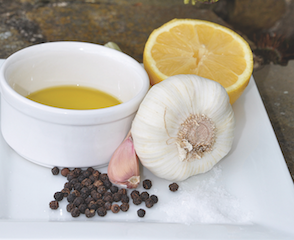
Here, the triumvirate is lemon juice, olive oil and garlic. It’s a classic for a reason and highlights the beauty of simplicity. My all-time favourite way of using this marinade is with a shoulder of lamb, which by the time it comes off the grill is like the ultimate kebab. Caramelised patches of scorched exterior with deeply flavoured and juicy interior. Served with a red onion salad and some pitta bread, it’s just the finest thing.
* 1 shoulder of lamb – boned with most of the excess internal fat removed and cut into strips a couple of inches wide and up to 6 or 7 inches long, depending on the size of the shoulder.
* 150ml olive oil
* 50ml lemon juice
* 10 finely chopped garlic cloves
* Salt and pepper
Mix together the marinade except the oil until the salt is dissolved. Mix in the oil. Add the lamb and thoroughly coat in the marinade (use your hands). Cover and leave for a couple of hours, or as long as overnight, in the fridge. When the time comes to barbecue you can have a pretty hot grill.
Only turn the lamb just before it looks like it will burn a lot (a little is good). If you turn it too much it will stick to the grill more, so you should aim to turn each piece only three times to cook the four sides. It will benefit from 10 minutes’ rest in the coolest end of the barbecue or on a warmed plate after grilling.
______________
Salt & brown sugar cure

A whole hot smoked chicken: massively impressive, stupidly easy – my kind of cooking. Follow this recipe and you’ll have a burnished bronze bird with dense, moist, smoky flesh.
Take all the trussing string off a chicken and cut through the skin at the thigh and wing joints to open the bird up. Slash each breast a couple of times and the thighs and legs almost to the bone.
* 250g table salt
* 250g brown sugar
* Pepper
Rub the mixed cure all over the bird, getting it right into the slashing. Cover and leave in the fridge for an hour. Rinse the cure off under cold water and leave to dry on kitchen paper for half an hour. Cooking will take an hour and half with the lid down on the barbecue, coals to one side, chicken to the other. Add hardwood sawdust as often as required to get that deep, smoky flavour. If the lid is hot to touch but not scalding you’ve got it about right. Test for doneness in the usual way: juices run clear when pierced at the thickest part.
______________
Rub and mop

Barbecue ribs: just the words on the page ought to have you drooling like Homer Simpson, but if they don’t the smell of ribs on the grill surely will. You can use spare ribs still on the rack, or even a whole piece of belly pork, either way this is not a quick meal.
They sound simple but you need to prep the day before and look after the barbecue for as long as three or four hours while the meat slowly comes to the perfect state of just falling apart.
This will test your skills like no other as you’ll need to keep the temperature of the barbecue slow and steady with the lid down. Worth it though, I promise you.
The marinade works in two stages: a dry flavour (rub) and then wet acidity (mop); both have endless variations of ingredients. You’ll want your favourite barbecue sauce and a simple salad for when they are ready.
Coat the meat thoroughly in the mixed dry ingredients, cover and leave at least over night in the fridge, 24 hours is good. When the meat is cooking regularly, baste with the mixed mop using a pastry brush or similar: at least once an hour, more like three times in two hours.
The rub
* 4tbsp smoked paprika
* 2tbsp dark sugar
* 1tbsp salt
* 1tsp celery salt
* A good grate of black pepper
* 1tsp cayenne
* 1tsp dry English mustard
* Crushed garlic to taste (more than three cloves)
The mop
* 250ml cider vinegar
* Half a thinly sliced onion
* 1 finely sliced chilli
* 2 tsp salt
* Twist of black pepper
______________
Ingredients to spice up your barbecue
Bison – A novel alternative to beef that can be prepared in exactly the same way. Low in fat, high in protein and needs to be grilled hot and fast.
Trout – We are awash with local reservoirs that glisten with trout. Why not catch one yourself for the full hunter-gatherer experience?
Ostrich – Even lower in fat than chicken but ostrich is a red meat that tastes similar to beef. Wow your weight-watching friends by grilling it to perfection.
Primitive lamb – Diminutive sheep with extra flavour. Dense and lower in fat so needs a gentler heat or longer marinade. Ask your butcher nicely.
Crayfish – Freshwater signal crayfish are killing our indigenous variety, so let’s eat them before they can. Throw another crayfish on the barbie.
______________


